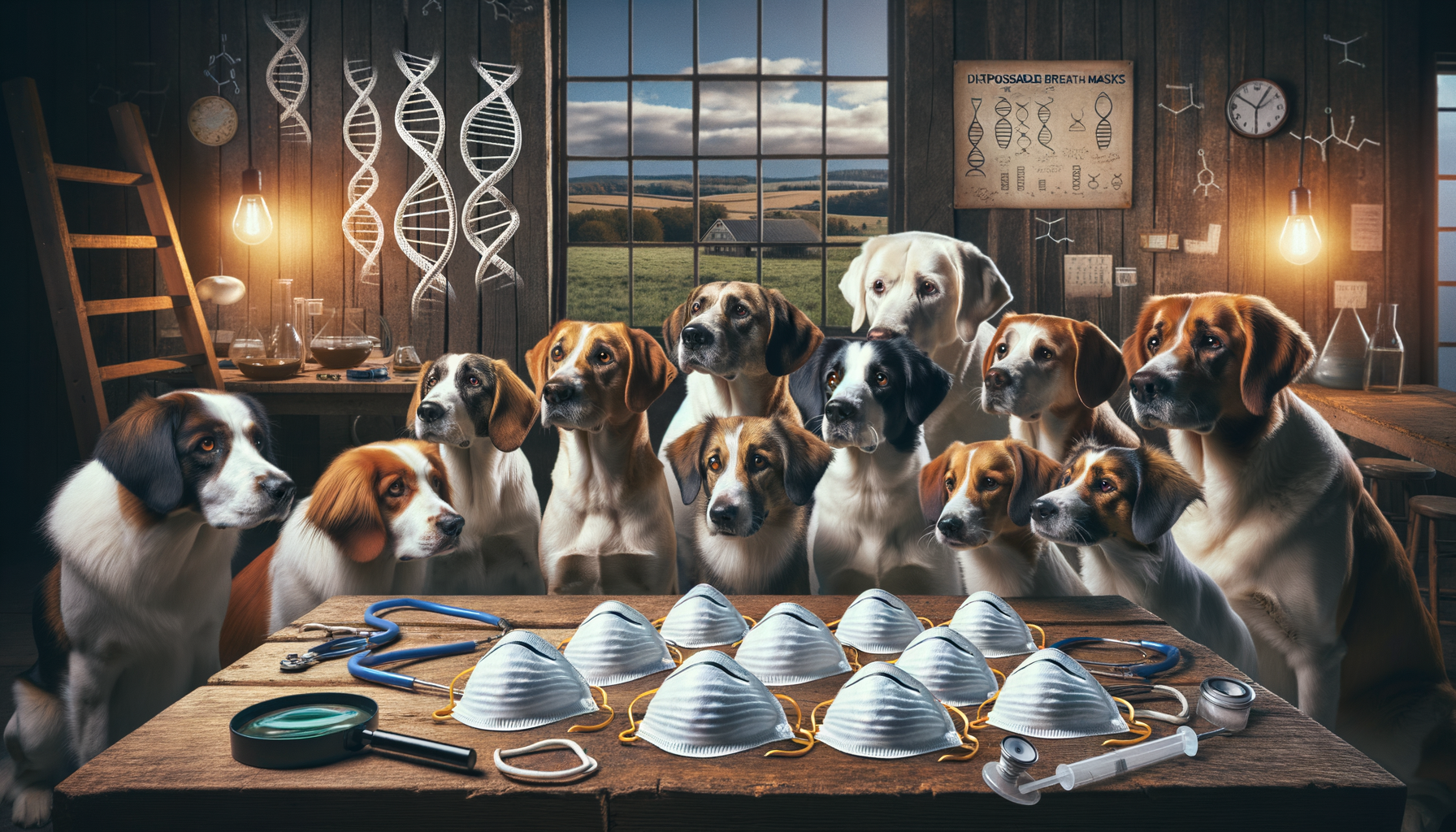Can a Dog Smell Lung Cancer in Just Five Minutes?
Short answer: Dogs can sometimes pick up the scent of lung cancer, but the promised 99 % accuracy and a quick, life-saving screening are not proven—and definitely not a replacement for a CT scan.
Read on to meet the dogs called Biest and Loki, follow the money trail from TV’s Höhle der Löwen, and see why scientists—and even some investors—say “Not so fast.”
1. Meet the Four-Legged “Lab” Technicians
In a converted barn near Erkelenz, five dogs are learning an unusual game of fetch. Instead of sticks, they sniff disposable breath-masks mailed in by clients. If the mask contains the scent pattern they were trained to recognise, the dog sits, stares, or taps a button.
The start-up behind the idea is Dogscan, founded in 2022/23 and already a minor media darling (WDR, RTL, Die Höhle der Löwen). The company hopes one day to charge for an at-home early-warning test.
“Our overall hit rate is 99 %,” Dogscan proclaims on its website.
That headline number caught investors’ eyes—and triggered our fact-check.
2. The 99 % Claim—Sniff Test or Smoke Screen?
What Dogscan says
- 99 % “overall accuracy”
- Broken down: 90 % sensitivity (cancer detected when present)
- 99 % specificity (no cancer signal when none present)
- Based on the company’s internal trials; no peer-reviewed paper yet.
What the science says
- German 2011 study (Klinik Schillerhöhe): 71 % sensitivity using breath samples.
Quelle - 2021 double-blind trial: 78 % sensitivity with breath alone; higher when urine was added.
PMC article - A much-cited 2006 pilot (≤31 cases) hit 99 %, but the sample was tiny.
PubMed
Bottom line:
• Some dogs clearly smell volatile organic compounds linked to tumours.
• No large, independent study has confirmed 90–99 % sensitivity in real-world screening.
• Dogscan’s own data remain unpublished; experts urge caution.
“Promising, but miles away from a clinically reliable test,” says veterinary oncologist Dr Karim Montasser.
Source: deine-tierwelt.de
3. Early-Stage Cancer: Hope vs. Hard Numbers
The original BILD snippet cheered that the dogs detect cancer “even in the early stage.”
Reality check:
- In the 2011 German study, accuracy dropped for Stage I tumours.
- The 2021 trial improved when breath was combined with urine, but early-stage data were still “insufficient for screening,” the authors wrote.
- Regulatory bodies in Germany recommend low-dose CT—not noses—for high-risk groups starting 2026.
IQWiG release
4. A “Life-Saving Check-Up”? Not Yet.
Current status in Germany:
- No medical guideline approves dog-sniff tests.
- No public or private insurer covers them.
- False negatives could delay real diagnosis; false positives could cause unnecessary panic.
In other words, calling the procedure “life-saving” is premature.
5. The Missing BILD Report
The original article credits a visit by reporter Laura Krimmer.
A deep search through BILD’s database (including paywalled BILDplus) turned up no published piece about her Dogscan visit. The claim remains unverified.
6. How We Checked
- Cross-referenced Dogscan claims with peer-reviewed studies.
- Contacted Dogscan (no scientific paper provided).
- Searched media archives for Laura Krimmer’s report—none found.
- Consulted medical guidelines (G-BA decision, IQWiG brief) for approved screening methods.
7. What We Know—and Don’t
Solid Facts
- Dogscan exists and is actively training at least five dogs.
- Dogs can detect some lung-cancer samples above chance.
- Low-dose CT remains the only authorised early-detection tool for high-risk groups in Germany.
Unanswered Questions
- Will Dogscan publish peer-reviewed results?
- Can larger trials replicate the vaunted 90–99 % sensitivity?
- How will regulators weigh animal-based tests against AI-enhanced imaging now in development?
8. Should You Bet Your Lungs on a Sniff?
If you are at high risk (smoking history, age 50+), doctors still advise:
- Discuss low-dose CT with a pulmonologist.
- Maintain regular check-ups.
- View dog-sniff services—however adorable—as experimental.
Dogs like Biest and Loki could one day join the diagnostic toolkit. For now, they are promising research partners, not certified diagnosticians.
Take-Away
The story is less “miracle in five minutes” and more “intriguing science work-in-progress.”
Enjoy the photos of the fluffy heroes—but keep your doctor, and perhaps a CT scanner, in the loop.
(Have new information or tips? Email the author at tips@investi-news.org)
